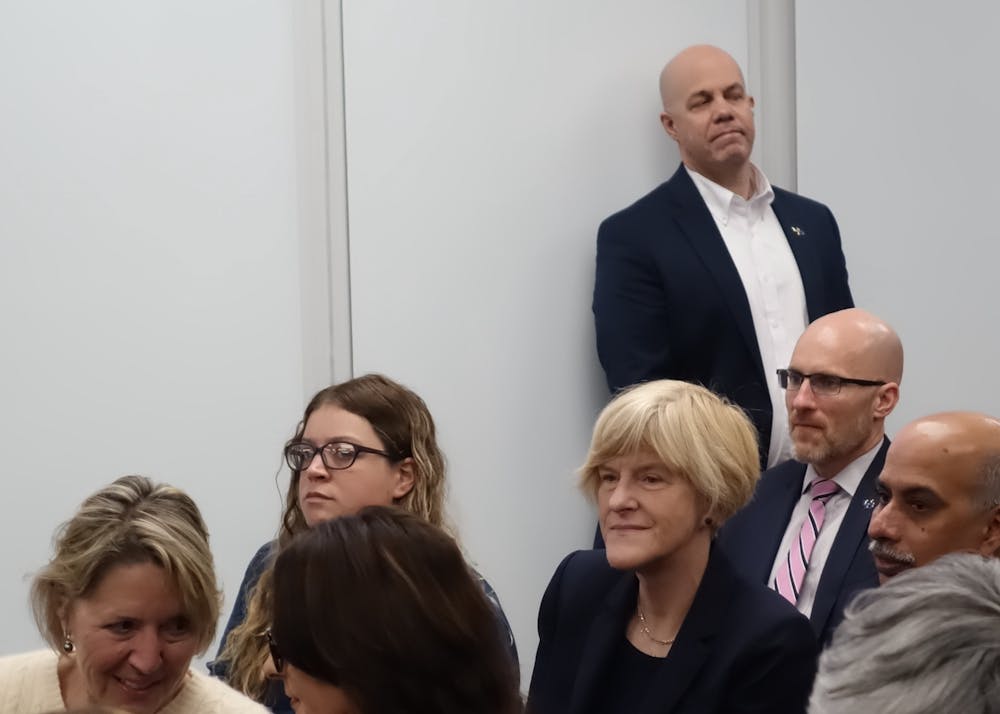Robin G. Schulze – the dean of College of Arts and Sciences (CAS) — announced on Monday that UB has “implemented a pause to the undergraduate portion of the budget model” and is conducting a “comprehensive review of [the] undergraduate enrollment plan.”
An overt push for increase in faculty stems from the ambition for UB to become a top 25 public university. Since fall 2021, CAS hired a total of 132 new faculty members: 81 full-time and 51 tenured. The hires are evenly distributed between natural sciences and math, social sciences and arts and humanities departments, with each receiving approximately 35% of the staff.
Schulze intended to rapidly diversify CAS faculty to appeal more to “top undergraduate and graduate students.”
“So I overspent, I say this absolutely, I overspent the bridge money that the provost provided us to diversify our faculty,” Schulze said. “I did that because the political situation in the United States offered us a very rare opportunity to hire some of the top scholars…away from other states and volatile political universe…and I own that decision.”
Schulze believed that the risky investment would be stabilized with tuition revenue, mainly from the undergraduate population which currently contributes to about 88% of the total. First-time freshman retention has decreased since the fall of 2019, resulting in a statistic where “One out of every four students who enrolled in fall 2019 are no longer here, which is about 300 students.”
Combined with a decrease in credit hours and shifts in student demands (especially away from the arts and humanities sectors), CAS has begun closely examining possible changes to the current model. All funds from the CAS section of UB Foundation have been allocated toward scholarships and efforts to recruit students.
Additionally, CAS is working with Apex Leader Growth, a consulting firm who has previously worked with the UB Geography and Environmental Sustainability departments, for data collection.
The current strategy for the 2024-2025 academic year is to “create new structures and degrees that produce reinvigorated demand for the Arts and Humanities.” Schulze intends to spearhead the plans to “revise majors quickly to address student interest, design new degrees that focus on the future of the labor market and drive experiential learning opportunities.”
Revising majors may include offering joint-major curriculums which Schulze advertised as an alternative to double-majoring.
“Students are really not inclined to do the double major thing anymore because of the idea that degree-applicable credit hours are such a problem,” Schulze said. “They are scared of the double major in a way that they weren’t in the past.”
Schulze argues that the changes are supposed to help the arts and humanities departments.
“I do not want to live in a world that is completely designed by engineers,” Schulze said.
A Faculty senate meeting will be held in the Center for Tomorrow on Tuesday, April 6 at 3 p.m. After that meeting, CAS faculty will hold a confidence referendum in 190 Norton Hall regarding the performance of Robin Schulze, President Satish Tripathi and Provost A. Scott Weber.
The Spectrum was denied direct access to Monday’s Zoom meeting by Cagatay Kutluhan — the head of the Faculty Senate’s Policy Committee — who cited a UB communications representative's statement that the meeting was not subject to New York's Open Meetings Law.
This article was updated to include the time and location of the confidence referendum vote.
CORRECTION: This article has been updated to correct the name of Apex Leader Growth.
Alisha Allison, an assistant news editor, contributed to the reporting of this article.
Mylien Lai is an assistant arts editor and can be reached at mylien.lai@ubspectrum.com

Mylien Lai is the senior news editor at The Spectrum. Outside of getting lost in Buffalo, she enjoys practicing the piano and being a bean plant mom. She can be found at @my_my_my_myliennnn on Instagram.





